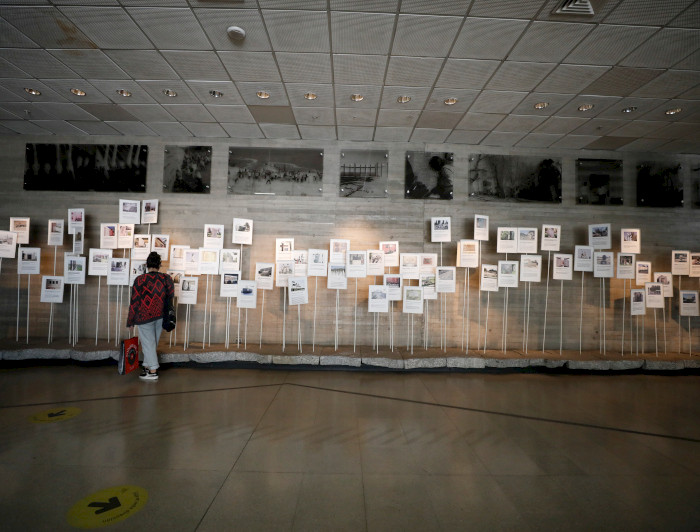International Course Explores the Global Importance of Memory and Human Rights
22 October 2024
UC Chile and UC Davis joined forces to reflect on memory and human rights. Through the social sciences, both institutions strengthened their collaborative relationship.

photo_camera The course included visits to significant sites such as the Museum of Memory and Human Rights.
In August, our university partnered with UC Davis and offered the course "Human Rights, Memory, and Democracy" to address globally relevant topics.
UC Davis professor Michael Lazzara led the course in collaboration with professors from UC Chile.
The course aimed to take an interdisciplinary approach to studying the role of human rights in democracy while also analyzing the importance of memory in case studies.
Through an immersive methodology, ten students from UC Chile and 24 from UC Davis studied human rights, shared comparative experiences, and gained a global perspective on the Chilean case.
In addition to theoretical classes, several field trips were organized to significant sites in and around Santiago:
- The Museum of Memory and Human Rights.
- The General Cemetery, where notable Chilean politicians and victims of forced disappearance, who were buried in mass graves, rest.
- The detention and torture centers at Londres 38 and Villa Grimaldi.
- The house of Nobel Prize-winning poet Pablo Neruda, located in Isla Negra on Chile's central coast.
Professor Lazzara appreciated the inclusion of these diverse elements, which allowed students to gain new perspectives, find common ground, and appreciate cultural differences.
"Human rights and memory are ever-relevant subjects. This course focused on memory, emphasizing that it is a continuous process, shaped and reshaped by each generation."
In addition to Professor Lazzara, the following UC Chile professors participated:
- Julieta Suárez-Cao and Hugo Rojas from the Institute of Political Science
- Alejandra López from the School of Social Work
- Piergiorgio Di Giminiani from the School of Anthropology
- Voluspa Jarpa from the School of Art
- Claudio Barrientos from Diego Portales University




